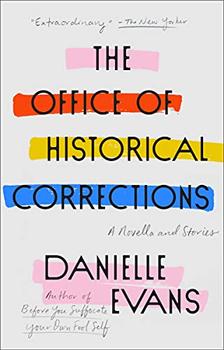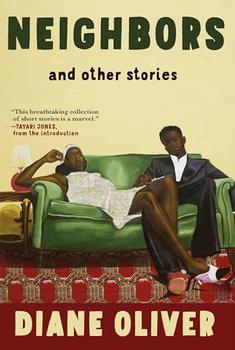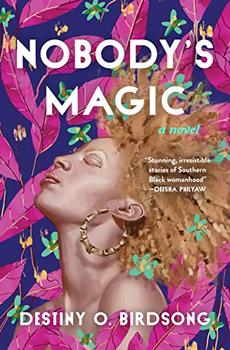Summary | Excerpt | Reviews | Beyond the book | Read-Alikes | Genres & Themes | Author Bio

A Novella and Stories
by Danielle EvansThe award-winning author of Before You Suffocate Your Own Fool Self brings her signature voice and insight to the subjects of race, grief, apology, and American history.
Danielle Evans is widely acclaimed for her blisteringly smart voice and x-ray insights into complex human relationships. With The Office of Historical Corrections, Evans zooms in on particular moments and relationships in her characters' lives in a way that allows them to speak to larger issues of race, culture, and history. She introduces us to Black and multiracial characters who are experiencing the universal confusions of lust and love, and getting walloped by grief—all while exploring how history haunts us, personally and collectively. Ultimately, she provokes us to think about the truths of American history—about who gets to tell them, and the cost of setting the record straight.
In "Boys Go to Jupiter," a white college student tries to reinvent herself after a photo of her in a Confederate-flag bikini goes viral. In "Richard of York Gave Battle in Vain," a photojournalist is forced to confront her own losses while attending an old friend's unexpectedly dramatic wedding. And in the eye-opening title novella, a black scholar from Washington, DC, is drawn into a complex historical mystery that spans generations and puts her job, her love life, and her oldest friendship at risk.
Happily Ever After
When Lyssa was seven, her mother took her to see the movie where the mermaid wants legs, and when it ended Lyssa shook her head and squinted at the prince and said, Why would she leave her family for that? which for years contributed to the prevailing belief that she was sentimental or softhearted, when in fact she just knew a bad trade when she saw one. The whole ocean for one man. Not that she knew much about the ocean; Lyssa had been born in a landlocked state, and at thirty it seemed the closest she might get to the sea was her job working the gift shop in the lobby of the Titanic. It was not a metaphor: it was an actual replica of the Titanic, with a mini museum on the lower level, though most of their business came from weddings and children's birthday parties hosted on the upper decks.
The ship-shaped building was a creation of the late nineties, the pet project of an enterprising educational capitalist who wanted to build an attraction both rigorous in its ...
This collection contains six short stories along with the titular novella, a piece that challenges American narratives stemming from a colonial and racist past. It would be easy to assume that the novella is the highlight of the book, with the preceding stories serving as mere preludes, but this assumption would be inaccurate. While the novella is certainly memorable and arresting, the short stories stand alone as prescient, unique literary revelations of mortality, desire and other aspects of the human condition. From "Boys Go to Jupiter," an account of a thoughtless white college student who faces the consequences of donning a Confederate-flag bikini in rebellion against her stepmother, to a twisted tale of male ego and the objectification of women in "Why Won't Women Just Say What They Want," each story follows overarching themes of apology, correction and grief with its own distinctive narrative...continued
Full Review
(717 words)
This review is available to non-members for a limited time. For full access,
become a member today.
(Reviewed by Nichole Brazelton).
 Kelly Link, author of Get In Trouble
A dazzling collection. Contemporary life in Danielle Evans's stories has a kind of incandescent and dangerous energy: even in moments of somberness or isolation, her characters crackle with heat, light, and self-awareness.
Kelly Link, author of Get In Trouble
A dazzling collection. Contemporary life in Danielle Evans's stories has a kind of incandescent and dangerous energy: even in moments of somberness or isolation, her characters crackle with heat, light, and self-awareness. Rebecca Makkai, National Book Award finalist for The Great Believers
Danielle Evans is a stone-cold genius, in possession of both a merciless eye and a merciful heart. And she keeps getting better.
Rebecca Makkai, National Book Award finalist for The Great Believers
Danielle Evans is a stone-cold genius, in possession of both a merciless eye and a merciful heart. And she keeps getting better. Roxane Gay, New York Times-bestselling author of Difficult Women and Bad Feminist
With the seven brilliant stories in The Office of Historical Corrections, Danielle Evans demonstrates, once again, that she is the finest short story writer working today. These stories are sly and prescient, a nuanced reflection of the world we are living in, one where the rules are changing, and truth is mutable and resentments about nearly everything have breached the surface of what is socially acceptable. These stories are wickedly smart and haunting in what they say about the human condition… Her language is nimble, her sentences immensely pleasurable to read, and in every single story there is a breathtaking surprise, an unexpected turn, a moment that will leave you speechless, and wanting more.
Roxane Gay, New York Times-bestselling author of Difficult Women and Bad Feminist
With the seven brilliant stories in The Office of Historical Corrections, Danielle Evans demonstrates, once again, that she is the finest short story writer working today. These stories are sly and prescient, a nuanced reflection of the world we are living in, one where the rules are changing, and truth is mutable and resentments about nearly everything have breached the surface of what is socially acceptable. These stories are wickedly smart and haunting in what they say about the human condition… Her language is nimble, her sentences immensely pleasurable to read, and in every single story there is a breathtaking surprise, an unexpected turn, a moment that will leave you speechless, and wanting more. In Danielle Evans' collection The Office of Historical Corrections, the short story "Happily Ever After" centers around Lyssa, who at 30 years old is navigating life after her mother's death from ovarian cancer and has been advised to have her own ovaries removed as soon as possible. Ovarian cancer is the seventh most commonly diagnosed cancer in women, and the eighth leading cause of cancer-related death for women. It is the deadliest form of gynecologic cancer.
In Danielle Evans' collection The Office of Historical Corrections, the short story "Happily Ever After" centers around Lyssa, who at 30 years old is navigating life after her mother's death from ovarian cancer and has been advised to have her own ovaries removed as soon as possible. Ovarian cancer is the seventh most commonly diagnosed cancer in women, and the eighth leading cause of cancer-related death for women. It is the deadliest form of gynecologic cancer.
Racial disparities exist in the outcomes of ovarian cancer. Notably, white women are statistically more likely to be diagnosed with ovarian cancer, but Black women are more likely to die from it. This reality has been attributed to several factors. Some studies have shown ...
This "beyond the book" feature is available to non-members for a limited time. Join today for full access.

If you liked The Office of Historical Corrections, try these:

by Diane Oliver
Published 2024
A bold and haunting debut story collection that follows various characters as they navigate the day-to-day perils of Jim Crow racism from Diane Oliver, a missing figure in the canon of twentieth-century African American literature, with an introduction by Tayari Jones

by Destiny O. Birdsong
Published 2023
In this glittering triptych novel, Suzette, Maple and Agnes, three Black women with albinism, call Shreveport, Louisiana home. At the bustling crossroads of the American South and Southwest, these three women find themselves at the crossroads of their own lives.





